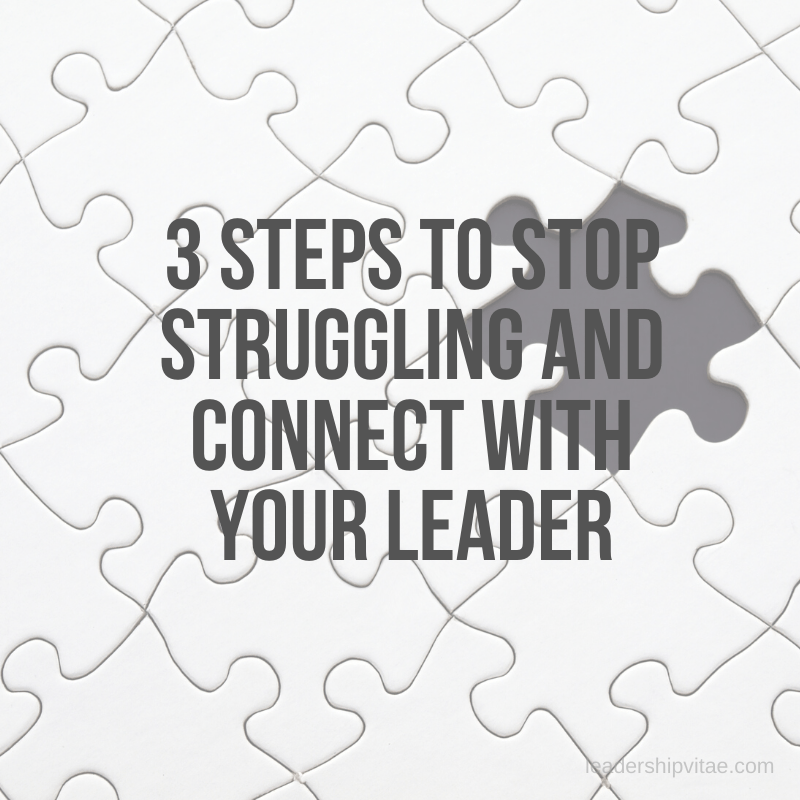
Have you ever worked for the unicorn? A leader that you connected with, that cared about you? One that valued who you are, how you show up, and provided meaningful feedback and coaching to help you achieve your best self?
It’s an amazing feeling, isn’t it? One that you want to grab ahold of and not let go.
Until the day they have to move on. Or life changes mean you have to. Then it’s back to regular people. Perfectly flawed humans who are not always a perfect fit.
Most people are not unicorns. They may aspire to show up as all the leadership training, blog posts (guilty), and books suggest. The reality is that no matter how we show up, when people are involved, there is no “one-size fits all” approach.
The odds of every manager being a perfect match are the equivalent of winning the career lottery. Sometimes, we’ll struggle to connect. Worse, sometimes we may not like, trust, or respect the person we work for.
Whether we’re working for the hot mess, self-absorbed, absent, or jerk manager, we have a few choices that can help.
1. Find the Good
When we feel we are not having our needs met, it can be challenging to see the positive in the person or the relationship. That doesn’t mean there isn’t good to find.
Ask yourself, what does this person do well that I can benefit from? How do I meet them where they are to get more of that?
Everyone has prior experiences that shape how they show up. That includes our leaders. Maybe they’ve been successful at networking to propel their career forward. Storytelling as a way to create connections. Solving big, complex problems. Managing budgets.
They also have techniques that have worked for them, and many that haven’t. They’ve embraced and likely been rewarded for what has worked and rejected what hasn’t. It’s possible what works for you is something that hasn’t worked for a lot of others. Or things that have made them successful rub you the wrong way.
It may be hard to believe, but there is a reason why your manager got to their position. It’s also possible that he or she has go-to tools in their toolkit that just don’t happen to align to your personal preferences. Maybe, if you’re open to them, they might work for you too.
2. Provide Feedback
Those tools that don’t quite fit for you? Maybe your manager doesn’t know or even suspect they aren’t a match.
There is always an opportunity to provide feedback on something we are struggling with. Something that’s getting in the way of the good work we could be doing. If you need more of x and less of y, consider sharing it in a tactful and respectful way.
Our 1×1’s, performance check-ins and annual reviews are not just an opportunity to receive feedback. They are also an opportunity to share it.
[Tweet "Feedback is a two-way street. An opportunity to give as well as receive."]
In my experience, many of those that I struggle to connect with don’t realize what’s going on from my side of the relationship. While I suffer in silence, they are in blissful ignorance there is anything wrong.
When I do get up the gumption to share, it’s a rare person that tells me to suck it up. Instead, they are appreciative of the feedback and often apologetic. Sometimes, I even learn another perspective I hadn’t considered.
3. Decide to Accept
If the not so good isn’t changing, you have a choice to accept that we are all humans with our strengths and challenges.
We have an option to meet our leaders where they are instead of expecting them to be someone else. No one is perfect, and everyone has something to offer. If we can see the good and accept their perceived limitations, we will save ourselves a lot of frustration.
[Tweet "Meeting someone where they are, instead of where we wish they were, builds trust and limits frustration."]
If you look for perfection and see someone who is not your ideal as a leader, you’ll always be disappointed. In the first 20 years of my career, there were two leaders that gained and maintained my respect. Two that I felt I could learn more than what not to do.
I look back now and think, what arrogance. What wasted opportunities. Rather than focus on what they couldn’t offer, I missed an opportunity to consider what they could.
Short Story: Disconnect with a Unicorn
I recall when my unicorn used to give me feedback on my presentations. It was always something about grammar or spelling. I would get so frustrated. All I could think was “Really? What about the content? Can’t you just tell me good job?”
When I finally told him of my frustrations, he replied “Kristin, if that’s all I find, it’s because you’re doing amazing work. It’s a compliment that this is the only coaching I have to offer you. I have to work hard to find anything to help you improve.”
He saw himself as a coaching leader and was looking for any opportunity he could find to show up the way he knew how. Huh. Not quite what I was looking for, but that didn’t mean it was wrong. Just different.
Because of the other positives I saw in him and our relationship, I was able to put this mis-match in perspective. Had I failed to give others the benefit of the doubt regarding other disconnects?
The final lesson
Sometimes, the disconnect with our manager can be so fundamental that we cannot be successful. Rather than see it as a failure by that person, we can accept that it’s not a good fit and look for an opportunity elsewhere.
While we can always decide to move on, I’d suggest thinking long and hard about making a change. Psychological and physical safety must always be paramount. In all other cases, it’s worth pausing and reflecting prior to making a change.
Looking back on those former “bad managers,” I realized I was the only constant. At every turn, I had a choice in how I showed up, the opportunities where I failed to give feedback, and how my perception of them colored everything they did.
Was I painting them in a certain light based on experiences of my past? Was I giving them a fair shake? Or had I written them off early and missed out on opportunities to learn?
[Tweet "We are the only constant in our relationships and roles. How we show up is the greatest predictor of success."]
Every relationship requires two people to be successful, or to struggle. Consider how you show up, and whether you are treating your manager and yourself with grace and understanding.
Have you struggled to connect with your manager? What other suggestions would you share? I’d love if you’d include them in the comments.








